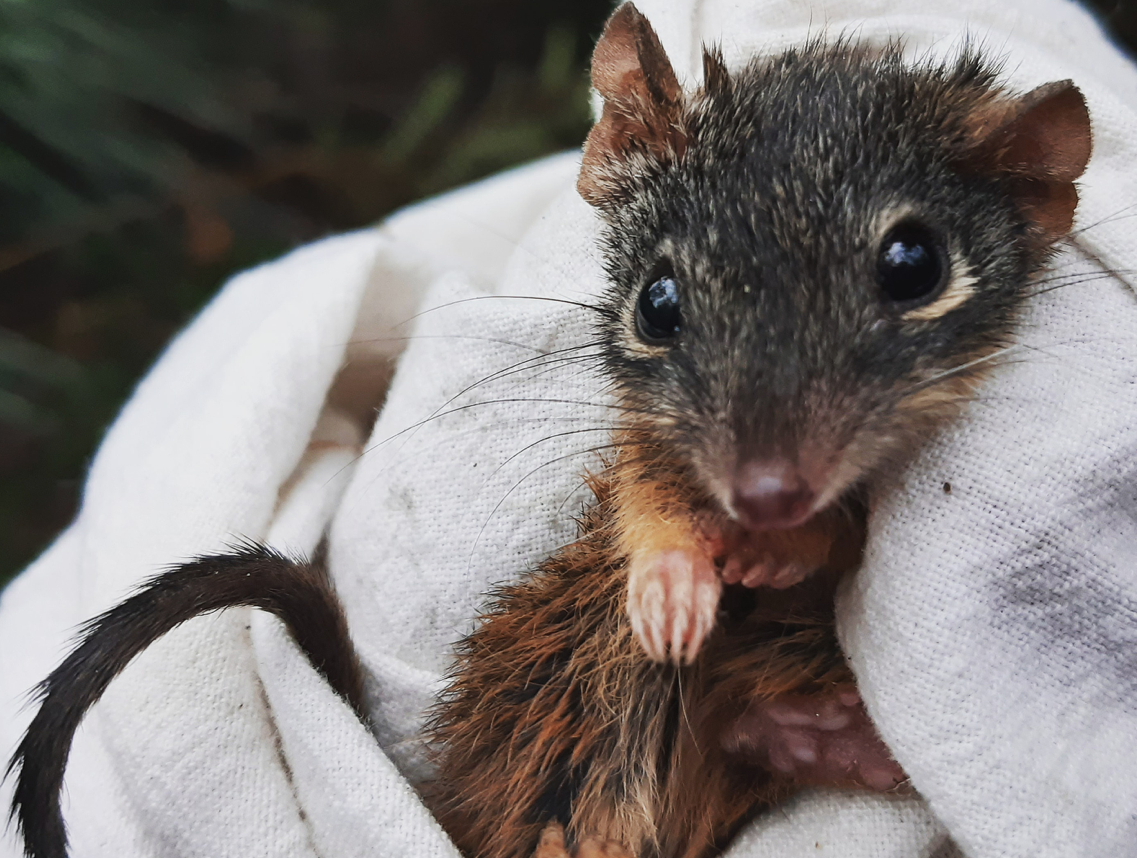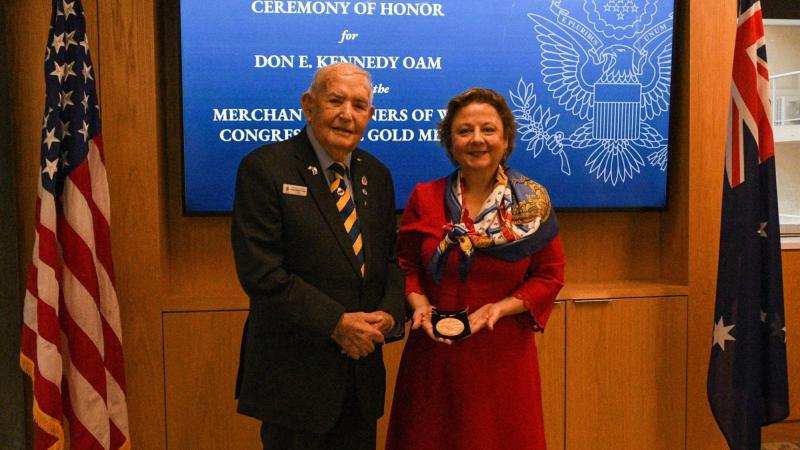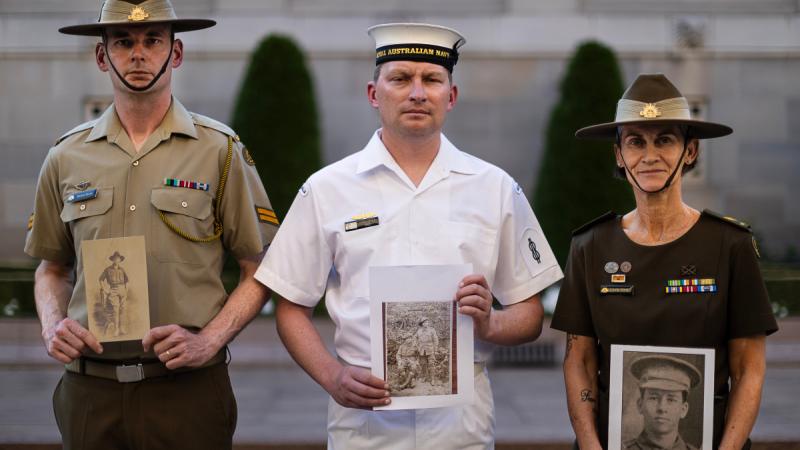
The yellow-footed antechinus is a small mouse-like native animal which is classified as vulnerable in South Australia. Most species nest communally in tree-hollows.
Wildlife ecologist Dr Jasmin Packer from the University of Adelaide’s School of Biological Sciences, has lent her voice to the long-haul recovery of the habitat devastated by the recent Adelaide Hills bushfire, which is home to endangered species and wildlife.
“The Adelaide Hills bushfire left a devastating 2700-hectare hole in wildlife habitat,” Dr Packer said.
“The bushfire primarily ravaged across the Mt. Bold Reservoir Reserve and Scott Creek Conservation Park – a biodiversity hotspot that is home to many native wildlife.
“The core remaining habitat for nationally endangered Chestnut-rumped Heathwren and Southern Brown Bandicoots, and our tiny Brown Thornbills, is right here in the heart of the Mt. Lofty Ranges.
“Six of our 14 long-term mammal monitoring sites were decimated by the fire. Bandicoots have been spotted in the habitat refuge near one of those sites but we need to support their habitat to recover as quickly as possible so they can re-colonise throughout the burn area.”
Volunteers from Friends of Scott Creek Conservation Park are urging the state government to commit to a plan for the recovery of the burnt habitat.
Dr Packer and volunteers from ‘Friends’ are also encouraging local nature-lovers in the community to get involved in the recovery effort.
“People in the hills region can play a part by protecting all bushland habitat on their property, providing a habitat for wildlife survivors by laying large hollow logs, and sharing wildlife sightings on iNaturalist to give us a better picture of who has survived and where.”Dr Jasmin Packer
For more information in getting involved people can visit: https://friendsofscottcreekcp.org.au/
Dr Packer’s research focuses on understanding how ecosystems respond to disturbance and other global changes, and what steps can be taken to enhance their capacity to cope with the negative impacts. She builds long-term partnerships such as citizen science projects that have a real impact on improving biodiversity conservation.








